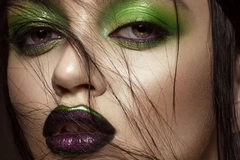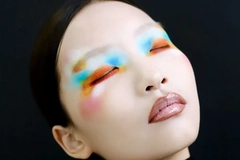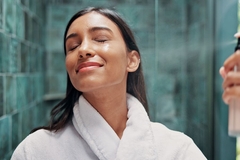UV Safety Initiative unites beauty sector and government against melanoma surge

The British Beauty Council has launched a cross-industry UV Safety Initiative to promote sun protection awareness, improve SPF education, and increase access to protective products. The initiative also aims to influence government policy on UV safety.
The campaign is touted as the first coordinated industry effort to address rising melanoma rates and widespread gaps in public understanding of sun care. The initiative coincides with sun cancer awareness month and is backed by major companies and retailers such as L’Oréal Groupe, Boots, and Lookfantastic.
The UV Safety Initiative also launches alongside a recent government inquiry into UV safety by the All-Party Parliamentary Group (APPG) for Beauty and Wellbeing. The effort will investigate how well the public understands UV risks and the effectiveness of current safety measures, both in terms of government policies and daily consumer behaviors.

The report, set for spring 2026, will provide recommendations for the personal care industry and government regarding sun protection education. Brands involved in the campaign will contribute evidence to support the investigation.
In parallel developments, the UK’s Scientific Advisory Group on Chemical Safety in Consumer Products (SAG-CS) has published new opinions on two cosmetic UV filters: homosalate and 4-methylbenzylidene camphor (4-MBC).
 Many Gen Z consumers still underestimate the long-term risks of tanning and sunburn.Melanoma rates prompt action
Many Gen Z consumers still underestimate the long-term risks of tanning and sunburn.Melanoma rates prompt action
According to the British Beauty Council, 57% of UK consumers say that sunscreen is too expensive, and 29% say they would wear it daily if it were cheaper. At the same time, melanoma diagnoses in the UK are projected to reach 26,500 annually by 2038, according to Cancer Research UK. Currently, around 16,000 new cases are diagnosed each year, with 2,300 resulting in death.
Despite years of brand-level education on the risks of UV damage, British Beauty Council’s CEO, Millie Kendall, says fragmented communication has limited impact.
“We can only drive real change when we collaborate to achieve a shared vision,” she says. “With statistics showing that 3 in 4 people neglect to address sun damage, now is the time to kickstart this vital work.”
The UV Safety Initiative will run for one year and culminate in forming a permanent UV Safety Coalition. Once published, this coalition will advance the APPG’s recommendations to the government. Therefore, the British Beauty Council calls on additional businesses to join the initiative to maximize its reach and effectiveness.
Coordinated industry response
The UV Safety Initiative represents a shift from isolated company campaigns to a coordinated public health scheme supported by the beauty industry. Through their collaboration, the initiative’s participants aim to foster consistent messages on the dangers of UV radiation and the importance of regular SPF use.
This approach intends to close gaps in consumer understanding that persist despite the growing availability of sun care products. Recent data highlighted how wide that gap remains — particularly among Gen Z. In a survey from the American Academy of Dermatology, nearly all respondents said sun protection is important, but 70% of Gen Z reported wanting tanned or darker skin, and over half were unaware of the risks of sunburn.
Campaign messaging for the UV Safety Initiative will roll out across retail, digital, and include in-store promotions. Brands will also promote year-round sun protection to counter seasonal misconceptions.
Retailers such as Boots and Lookfantastic will serve as main access points for SPF-related information and products.
.jpg) Affordability and education gaps continue to limit sun protection.The initiative also has a regulatory focus, and the council hopes to influence health and safety policy by supplying data and insights from participating brands.
Affordability and education gaps continue to limit sun protection.The initiative also has a regulatory focus, and the council hopes to influence health and safety policy by supplying data and insights from participating brands.
By integrating with the APPG inquiry, the initiative works to ensure that both industry insights and consumer behavior trends inform future government policy on UV safety. The British Beauty Council also serves as the official secretariat of the APPG, further aligning industry and parliamentary efforts.
Long-term goals include making sun protection a routine part of personal care and reducing melanoma incidence through preventative habits. Once formed, the coalition is expected to drive this cultural shift further by continuing advocacy, expanding partnerships, and potentially shaping product standards.
UV ingredient safety evaluations
SAG-CS deemed homosalate safe for use at concentrations up to 10% in sunscreen products. The panel’s conclusion was supported by a Physiologically Based Pharmacokinetic model, which, according to the panel, is representative of realistic human exposure.
Their conclusion allows the continued use of homosalate under regulated conditions, supporting product formulation continuity for brands involved in the UV campaign.
Conversely, SAG-CS could not confirm the safety of 4-MBC. Based on previously published data by the EU’s Scientific Committee on Consumer Safety, the review raised concerns about endocrine disruption, insufficient genotoxicity testing, and inadequate reproductive toxicity data.
.jpg) Daily SPF use remains low, despite rising melanoma rates across the UK.As a result, the advisory group could not establish a safe usage level for 4-MBC in cosmetics and did not conclude whether or not the ingredient is safe.
Daily SPF use remains low, despite rising melanoma rates across the UK.As a result, the advisory group could not establish a safe usage level for 4-MBC in cosmetics and did not conclude whether or not the ingredient is safe.
Rethinking rays
The UV Safety Initiative and recent SAG-CS assessments underscore a broader industry shift toward coordinated efforts in consumer health and sun protection. As brands and policymakers work together, sun safety is evolving from a seasonal message to a daily habit.
One driver of this shift is the growing integration of SPF across product formats, blending sun care with everyday skin care routines and moving it beyond traditional sunscreens into moisturizers, serums, primers, and hair and nail care categories.
One example is Clariant’s recent launch of Aristoflex Sun, a rheology modifier designed to support lightweight, non-greasy sun care formulations that feel like everyday skin care, encouraging regular use without compromising protection.













